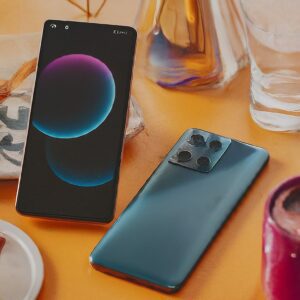Introduction
The smartphone landscape is ever-evolving, with major players like Samsung and Apple holding strong in the 2023 market. However, brands like Xiaomi and OnePlus are rapidly gaining traction. In 2024, choosing the “best” smartphone will be more challenging than ever, especially as consumer surveys highlight that camera quality, battery life, and overall performance remain top priorities. This in-depth guide breaks down the rumored frontrunners for 2024 and helps you make the most informed decision about your next upgrade.
Top Competitors of 2024
-
Samsung Galaxy S24 Series:
- Rumored Features: Enhanced low-light camera performance, even brighter displays, the latest Snapdragon processor for speed and efficiency.
-
iPhone 16 Series:
- Rumored Features: Potential periscope zoom camera upgrade, possible under-display Face ID for a cleaner design, and Apple’s next-generation A-series chip.
-
Google Pixel 9 Series:
- Rumored Features: Focus on further refining AI-powered camera features, possibly a new custom Tensor chip, and a commitment to long software support.
-
Other Noteworthy Contenders:
- OnePlus 12: Expected to deliver excellent performance and fast charging at a more competitive price.
- Xiaomi 14: Poised to offer cutting-edge hardware, potentially venturing further into unique camera features.
- Samsung Galaxy Z Fold 6: Foldable phones continue to mature, offering a larger tablet-like experience when unfolded.
Key Factors to Consider
-
Camera: While megapixels matter, focus on image processing capabilities. This translates to clearer shots at night, smoother video, and more realistic colors. Look out for larger sensors and advanced stabilization for the best results.
-
Display: Size is a personal preference, but resolution and refresh rates are critical. Higher resolutions mean sharper images, and faster refresh rates (120Hz and above) create incredibly smooth scrolling and gaming experiences. OLED screen technology is known for its vibrant colors and deep blacks.
-
Processor: The latest chipsets from Qualcomm (Snapdragon) and Apple (A-series) will power most 2024 flagships. Newer processors offer improved performance for demanding tasks and better power efficiency for longer battery life.
-
Battery: Capacity (measured in mAh) is important, but also consider fast charging speeds – both wired and wireless. Studies show the average smartphone loses about 20% charge per hour of active use, so fast top-ups are incredibly useful.
-
Design & Durability: Premium builds incorporate glass and metal, but plastic phones can be just as durable. IP ratings (e.g., IP68) indicate water and dust resistance. Unfortunately, screens remain susceptible to damage, so consider a case regardless of the phone you choose.
-
Software & Features: Android offers more customization, while iOS prioritizes a seamless user experience. Be sure to factor in years of guaranteed software updates. Brands like Google (Pixel) often lead with longer support cycles.
Pros and Cons of Each Model
-
Samsung Galaxy S24 Ultra
- Pros: Powerful cameras, stunning display, versatile features
- Cons: Potentially expensive, large size might be unwieldy for some
-
iPhone 16 Pro Max
- Pros: Smooth iOS experience, strong build quality, reputable camera
- Cons: Historically less customization than Android, potentially high price
-
Google Pixel 9 Pro
- Pros: Class-leading AI photography, clean software, likely long update support
- Cons: Camera hardware might not be as cutting-edge as rivals
Which Smartphone is Right for You?
-
Budget-Conscious: Consider 2023 flagships like the Samsung Galaxy S23 series or Google Pixel 8 which should see discounts once newer models arrive. Brands like OnePlus and Xiaomi consistently offer high-performing phones for less.
-
Camera Enthusiasts: Seek out phones advertising large image sensors, exceptional zoom capabilities, and advanced software processing for the most versatility in both photo and video capture.
-
Power Users: Prioritize phones with the latest processors (like the Snapdragon 8 Gen 3), at least 8GB of RAM, and large batteries (4500mAh+). These ensure smooth multitasking and handle gaming or video editing without a hitch.
-
Casual Users: Focus on reliable phones with long-lasting batteries and user-friendly software. Consider brands known for minimalist interfaces or features tailored towards ease of use.
Conclusion
The smartphone market of 2024 promises significant leaps forward. Compared to 2023 models, expect marked improvements in camera capabilities, especially for low-light environments, alongside more efficient processors and vibrant displays. The “best” smartphone depends entirely on what you value most. Consider your budget, the features that will enhance your daily life, and remember, hands-on experience is invaluable in making your final decision.

